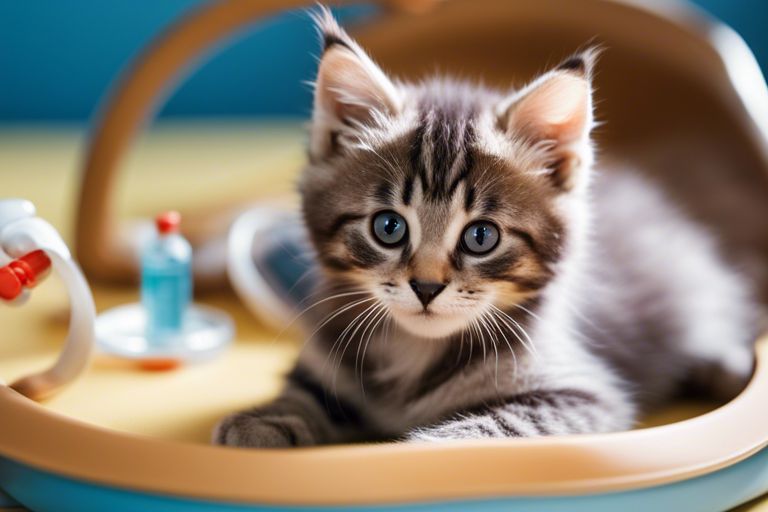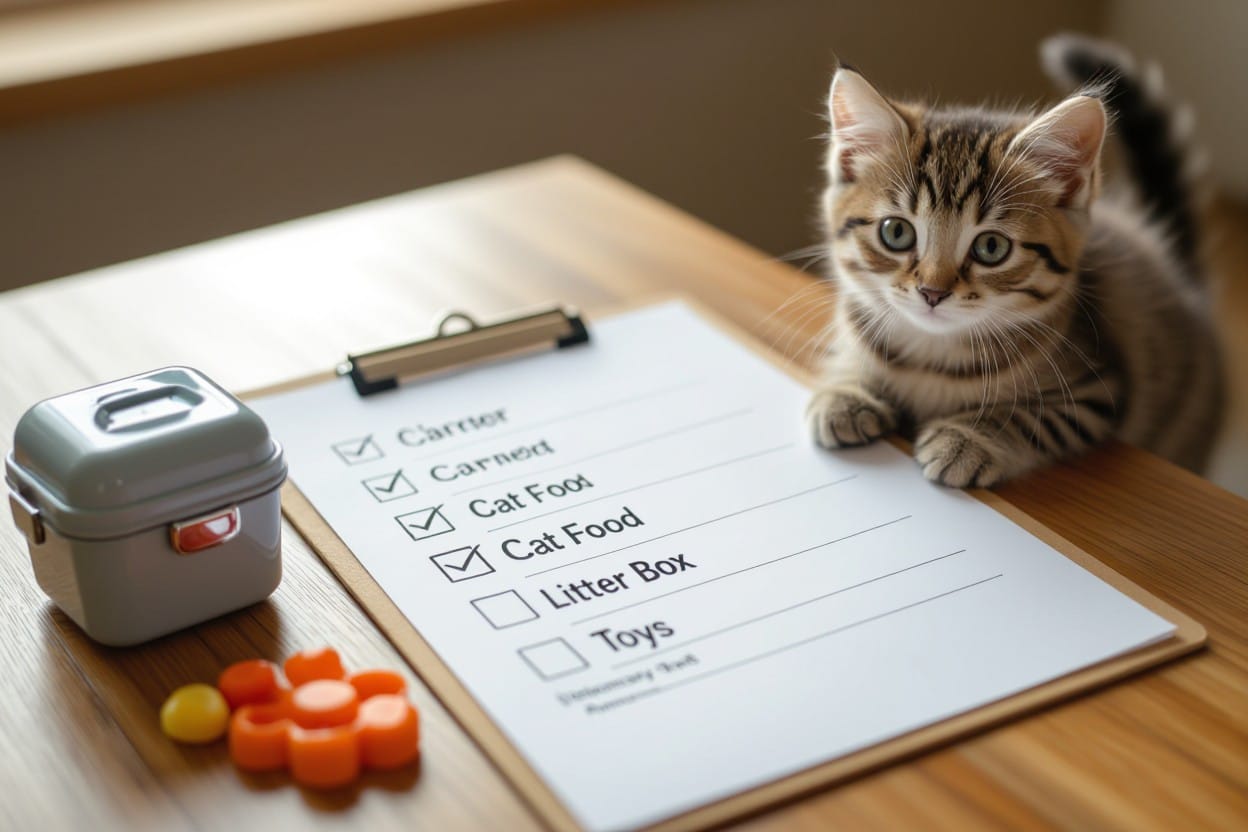Prevention is key when it comes to maintaining the health and well-being of your new feline companion. Kittens, like any young animals, are susceptible to a range of health issues that can impact their growth and development. By being proactive and implementing preventative measures, you can help your kitten stay healthy and happy throughout their early stages of life.
In this blog post, we will discuss some common health issues that kittens may face and provide practical tips on how to prevent them. From vaccinations to proper nutrition and regular veterinary check-ups, there are many steps you can take to give your kitten the best start in life and ensure they grow into a strong and healthy adult cat. Stay tuned for valuable insights and advice on keeping your kitten in the best possible health.
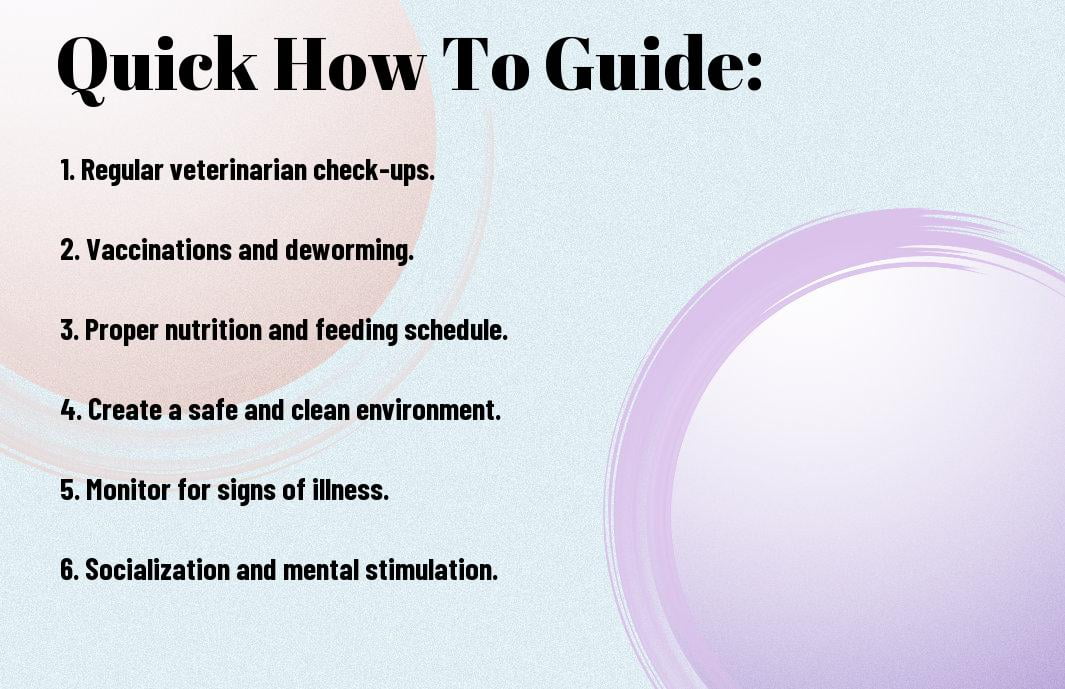
Nutritional Health in Kittens
How-To Guide on Balanced Diet for Kittens
Kittens have unique nutritional needs that are crucial for their growth and development. By providing a balanced diet, you can ensure that your kitten receives the necessary nutrients for optimal health. A high-quality kitten food that is specifically formulated for their age is recommended, as it will contain the right balance of proteins, fats, vitamins, and minerals.
It’s important to follow feeding guidelines according to your kitten’s age and weight. Avoid feeding your kitten human food or dog food, as they may not provide the right nutrients kittens need for their growth. Additionally, always ensure fresh water is available for your kitten to stay hydrated.
Identifying and Preventing Nutritional Deficiencies
Diet plays a crucial role in preventing nutritional deficiencies in kittens. Symptoms of nutritional deficiencies can vary and may include poor coat quality, lethargy, weight loss, or digestive issues. It is crucial to consult with your veterinarian if you suspect any deficiencies so they can recommend the appropriate dietary changes or supplements.
Another key aspect in preventing nutritional deficiencies is to avoid overfeeding or underfeeding your kitten. Each kitten is unique and may have different energy requirements, so monitoring their weight and adjusting their food intake accordingly is crucial for their overall health.
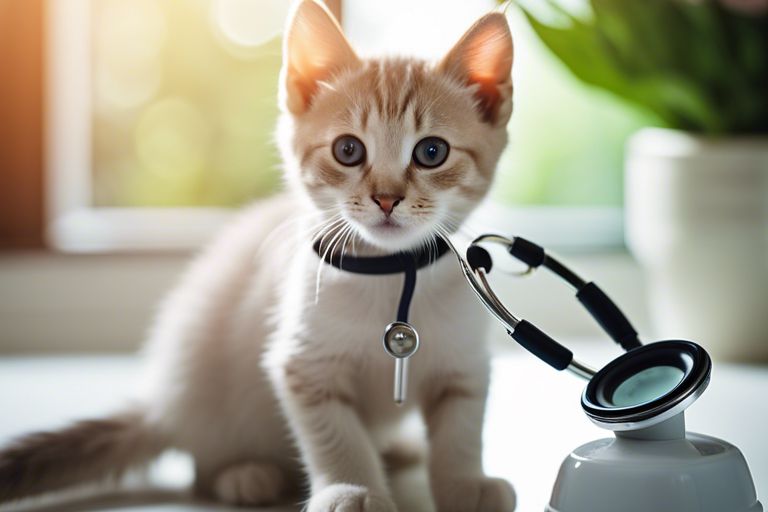
Parasitic Infections
Some of the most common health issues that kittens face are parasitic infections. These infections can be caused by fleas, ticks, and worms, and if left untreated, they can lead to serious health problems for your furry friend.
Tips for Recognizing Fleas, Ticks, and Worms
- Look for excessive scratching or biting of the skin.
- Check for tiny black or white specks in the fur, which could be flea dirt.
- Inspect your kitten’s ears for dark discharge, a sign of ear mites.
Though these parasites are tiny, they can cause major discomfort and health issues for your kitten. Regular grooming and preventative treatments can help keep your kitten safe and healthy.
Factors Contributing to Parasitic Infestations and Prevention Strategies
- High humidity and warm temperatures create ideal conditions for parasites to thrive.
- Regular cleaning of your kitten’s living environment can help prevent infestations.
Ticks are another common parasite that can pose a threat to your kitten’s health. These arachnids can transmit diseases such as Lyme disease, so it’s crucial to take steps to prevent tick infestations and promptly remove any ticks found on your kitten.
- Regularly check your kitten for ticks, especially after spending time outdoors.
- Use preventative tick treatments recommended by your veterinarian.
This proactive approach to preventing and managing parasitic infections in your kitten will help keep them healthy and happy as they grow. Stay informed and vigilant to ensure your kitten stays parasite-free and thriving.
Infectious Diseases
How-To Identify Signs of Feline Distemper, Respiratory Infections, and More
All kittens are susceptible to various infectious diseases that can be life-threatening if not treated promptly. Feline distemper, also known as panleukopenia, is a highly contagious viral disease that attacks rapidly dividing cells in the body. Symptoms include fever, vomiting, diarrhea, and lethargy. Respiratory infections, such as feline viral rhinotracheitis and calicivirus, can cause sneezing, nasal discharge, and eye ulcers. It’s important to monitor your kitten for any signs of these diseases and seek veterinary care immediately if you notice any concerning symptoms.
Vaccination Schedules and Best Practices for Prevention
On average, kittens should start their vaccination series around 6-8 weeks of age, with boosters every 3-4 weeks until they are about 16 weeks old. The core vaccines for kittens include those for feline distemper, feline calicivirus, and feline herpesvirus. It’s crucial to follow your veterinarian’s recommended vaccination schedule to ensure your kitten is protected against these infectious diseases. In addition to vaccinations, practicing good hygiene, such as regular cleaning of litter boxes and feeding areas, can also help prevent the spread of diseases among kittens.
Feline vaccinations are crucial in protecting your kitten from potentially deadly infectious diseases. By following the recommended vaccination schedules and engaging in preventative practices, you can help safeguard your kitten’s health and well-being. Consult with your veterinarian to determine the best vaccination plan for your kitten based on their lifestyle and individual risk factors.
Developmental Disorders
Common Developmental Health Issues and Their Symptoms
Some kittens may experience developmental disorders that can affect their growth and overall well-being. These issues can include conditions such as delayed motor skills, vision or hearing impairments, and cognitive disabilities. Symptoms of developmental disorders in kittens may vary, but common signs to watch out for include difficulty walking or balancing, unusual responses to visual or auditory stimuli, and slow learning abilities.
Tips for Early Detection and Intervention
Some developmental disorders can be better managed with early detection and intervention. It is crucial for kitten owners to be vigilant and observant of any abnormal behaviors or physical traits that may indicate a developmental issue. Regular veterinary check-ups and monitoring of the kitten’s milestones can help in timely identification of potential problems.
- Observe your kitten’s behavior and interactions with their surroundings.
- Consult with a veterinarian if you notice any concerning signs or delays in development.
- Early intervention and specialized care can greatly improve the quality of life for kittens with developmental disorders.
Common developmental disorders in kittens can significantly impact their overall health and well-being if left unaddressed. Early detection and intervention are key in managing these issues effectively. By staying proactive and seeking professional help when needed, kitten owners can ensure the best possible outcomes for their furry companions.
Behavioral Health and Socialization
Factors Affecting Kitten Behavioral Health
Despite their cute and playful nature, kittens can also display various behavioral issues if not properly socialized. Several factors can affect a kitten’s behavioral health, including:
- Early experiences in life, such as lack of exposure to different people, animals, and environments, can lead to fearfulness and anxiety in kittens.
- Genetics play a role in a kitten’s behavior, as certain breeds may be more prone to specific behavioral issues.
- Health issues, like pain or discomfort, can also manifest as behavioral problems in kittens.
Assume that providing a secure and stimulating environment is crucial in shaping a kitten’s behavior from a young age.
How-To Socialize Kittens to Prevent Behavioral Issues
To prevent behavioral issues in kittens, socialization is key. From the moment you bring a new kitten home, start the socialization process.
Behavioral experts recommend exposing kittens to various stimuli, such as different people, sounds, and textures, to help them become well-adjusted adults. For instance, introducing them to gentle handling and positive experiences can help build their confidence and trust in humans.
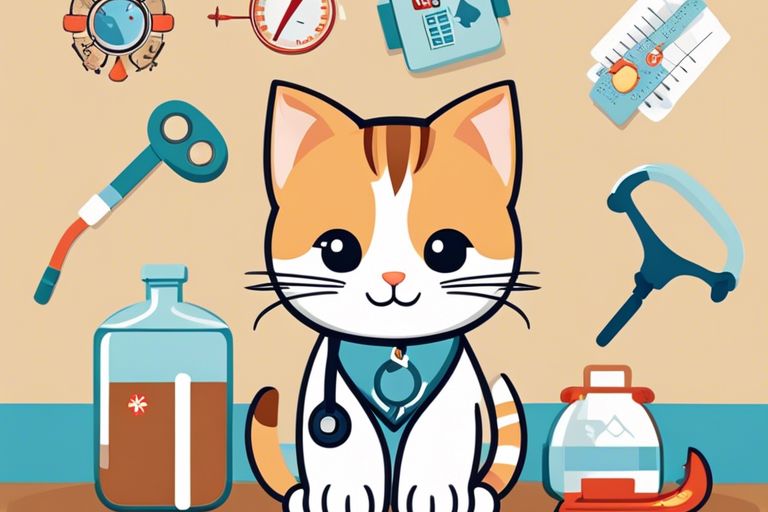
Routine Care and Monitoring
How-To Create a Regular Health Check Routine for Your Kitten
The key to keeping your kitten healthy is monitoring their well-being regularly. Start by establishing a routine health check at home. This can include checking your kitten’s eyes, ears, nose, mouth, coat, and overall behavior. By doing this regularly, you can quickly spot any changes or potential health issues.
Tips for Dental Care, Grooming, and Maintaining a Healthy Environment
One imperative aspect of kitten care is maintaining good dental hygiene, grooming practices, and a clean environment. Regularly brush your kitten’s teeth with a pet-safe toothbrush and toothpaste to prevent dental issues. Grooming should include brushing their fur to prevent matting and checking for any parasites like fleas. Additionally, ensure their living space is clean, well-ventilated, and free from any hazards.
- After grooming your kitten, reward them with a treat to make the experience positive and reinforce good behavior.
One way to maintain a healthy environment for your kitten is to provide them with a designated scratching post to encourage good scratching behavior and prevent damage to furniture. Regularly clean their litter box to prevent odors and keep it a comfortable space for your kitten.
- After cleaning your kitten’s litter box, disinfect it with pet-safe cleaners to eliminate any harmful bacteria.
Tips: Regularly monitoring your kitten’s health and providing proper care can prevent common health issues and ensure they lead a happy, healthy life. Your veterinarian can also provide guidance on specific care routines and answer any questions you may have about your kitten’s well-being.
Emergency Situations
Recognizing and Responding to Health Emergencies
Some health emergencies in kittens can be life-threatening if not identified and addressed promptly. It is crucial for cat owners to be able to recognize signs of distress in their feline companions.
Common indicators of a health emergency include difficulty breathing, seizures, sudden lethargy, vomiting or diarrhea that is persistent, inability to urinate or defecate, and any signs of injury like bleeding or visible wounds. If you notice any of these symptoms or behaviors in your kitten, it is vital to seek immediate veterinary care.
How-To Create a First-Aid Kit for Your Kitten
Little preparation can go a long way in ensuring you can provide immediate care to your kitten in case of an emergency. Putting together a first-aid kit for your cat is a proactive step in being prepared for unexpected health issues.
Another vital item to include in your first-aid kit is contact information for your local emergency veterinary clinic. In case of an emergency, having this information readily available can save valuable time and help get your kitten the urgent care they need.
Conclusion
Considering all points discussed, it is clear that there are several common health issues that kittens may face, such as parasites, upper respiratory infections, and dental problems. However, by taking preventive measures, such as regular veterinary check-ups, vaccinations, proper nutrition, and a clean living environment, many of these health issues can be avoided or detected early for prompt treatment.
It is crucial for kitten owners to be proactive in caring for their furry companions’ health to ensure they lead long, happy, and healthy lives. By staying informed about common health issues and taking the necessary steps to prevent them, you can provide your kitten with the best chance at a thriving future.
FAQ
Q: What are common health issues in kittens?
A: Common health issues in kittens include respiratory infections, ear mites, fleas, diarrhea, and feline panleukopenia (feline distemper).
Q: How can respiratory infections in kittens be prevented?
A: To prevent respiratory infections in kittens, ensure they are kept in a clean and stress-free environment, avoid exposure to sick cats, and ensure they receive proper nutrition and vaccinations.
Q: What are the signs of ear mites in kittens?
A: Signs of ear mites in kittens include scratching at the ears, shaking of the head, dark discharge in the ears, and inflammation of the ear canal.
Q: How can fleas be prevented in kittens?
A: Fleas can be prevented in kittens by using veterinarian-recommended flea prevention products, keeping their living area clean, and grooming them regularly with a flea comb.
Q: What is feline panleukopenia and how can it be prevented in kittens?
A: Feline panleukopenia, also known as feline distemper, is a highly contagious viral disease that can be prevented through vaccination. It is important to ensure kittens receive their initial series of vaccinations and follow-up boosters as recommended by a veterinarian.
